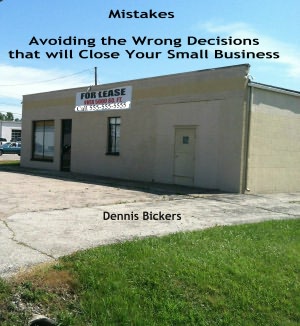Image courtesy of FreeDigitalPhotos.net
I've used this company before, and I'm pretty sure he works out of his home. I don't have a problem with that because so do I. I also don't have a problem with him using a cell phone for his business phone. Many small business owners do that. But, that's no excuse for projecting such a poor professional image.
One of the challenges people have when they work out of their home is remembering that they are operating a business and need to project a professional image to their potential clients. My office is in a separate room of our house and this is the only thing that room is used for. A dedicated phone line runs into that room with a different number than our home phone. When the phone on my desk rings I know that it is almost always a business call, and I answer it much differently than when I answer our home phone. I also don't have a television blasting away in the background or music playing loudly. Even if I do have those on, it's a simple matter to mute them when the phone rings so that there are no distractions in the background. I want to project the same image to people who call my home office that they would receive if I worked out of a high rise office complex.
Here are some other things to consider when working out of a home office. Don't allow children to answer your business phone. Isolate your business phone from household appliances. It's nice to be able to wash a load of clothes while I'm working at my desk, but I wouldn't want a caller to hear my washer going through the spin cycle while we're discussing him hiring my services.
I've always found it best to meet clients away from my house. Occasionally, I have one who offers to come to my office to talk, but I really don't want people coming to my house. I've found that if I offer to meet them somewhere for lunch, and I'm buying, they're usually happy to do that. It keeps things on a more professional level and keeps our home from being a meeting place.
One other thing I started doing about a year ago was I got a post office box and began switching my business mail address to that box number. I don't consider that a big thing, but I wanted to separate my personal mail from my business mail. Most of the contacts I have is through e-mail so I have found that if I stop by the post office once a week to check my box I can stay on top of my business mail.
There are many good reasons for working out of your home, and for many of us it makes a lot of sense to do so, but we must remember that it is important that we always project a professional image in everything we do. When a new client first calls us it is the one chance we have to make a good first impression so be professional.


